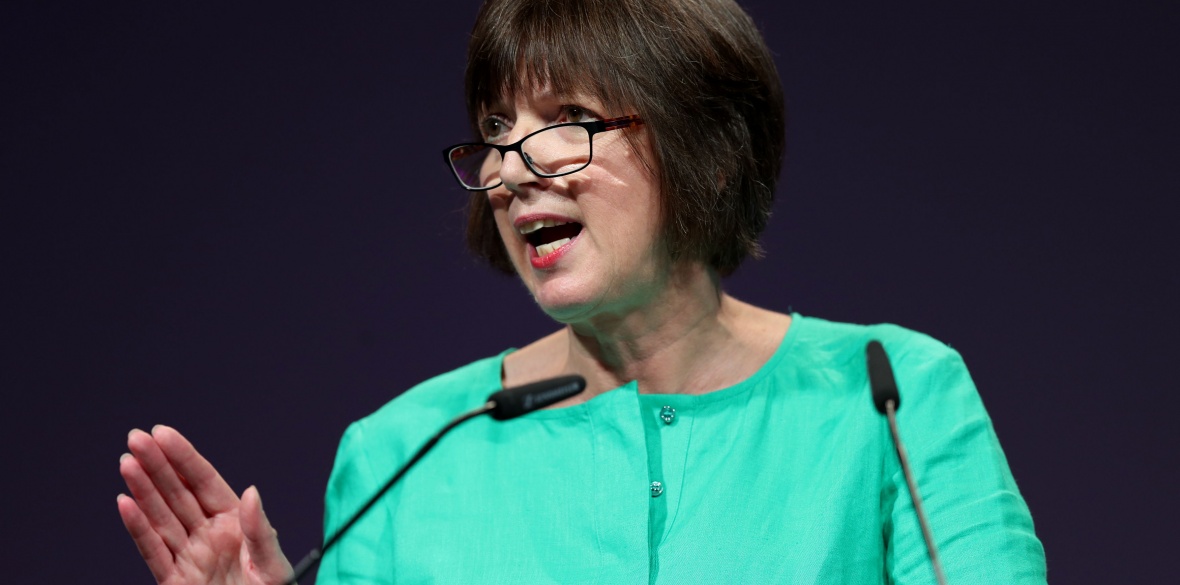TUC general secretary Frances O’Grady was bang on target when she welcomed the new year with a call that meets heartfelt agreement in every workplace and every home in working-class Britain — Britain needs a pay rise.
The government, like all neoliberal administrations of its type both within the EU and without, manoeuvres to place the burden of resolving its never ending crises on working people.
In this endeavour it relies on the willing — even enthusiastic — co-operation of the many privatised businesses that have replaced our publicly owned utilities.
Thus energy bills are rising faster than the dodgy firms that rode the wave of privatisation are failing.
Millions of workers and their families have been hit by the cruel cut in universal credit and uncounted numbers face a personalised Covid lockdown on just £96 a week sick pay.
Boris Johnson and his Chancellor Rishi Sunak have been promoting the idea of a National Insurance contribution rise later in the spring as a measure to meet anxieties about the cost of Covid.
In presenting it this way they hope to blunt the resentment that such a rise will cause among people whose pay packets today purchase less than they did a decade ago.
When Jacob Rees-Mogg lets it be known that he is opposed to such a rise in National Insurance, it is not because he fears the impact it might have on his household budget.
The Eton-educated leader of the House of Commons is already fabulously rich even by the standards of his Cabinet colleagues and was prudent enough to marry the heir to a £45 million fortune who stands to inherit a stately home in Kent.
This will be a useful addition to the £5.6 million Cowley Street home nestling by Westminster Cathedral and the Grade II listed Jacobean manor house in Somerset.
Rather, Rees-Mogg would further trim government spending.
This is not a dispute over first principles but rather jostling for preference among a select electorate of Tory MPs and political patronage within the ruling class as a whole.
Anger at bearing the burdens of a winter complicated by Covid on frozen incomes will, the Tories anticipate, result in a spring offensive on pay — the early signs of which are already being charted by the excellent Strike Map.
The TUC makes the compelling point that if wage growth over the past period was to match the period before the 2008 financial crash then workers would be £8,000 better off in real terms.
In doing so, the TUC number-crunchers make it usefully clear that the problem lies in the nature of the system itself, if only because wage growth under booming business inevitably bombs when unavoidable capitalist crises occur.
We can all get behind the TUC campaign for a real pay rise. And when O’Grady says that 2022 is the time for a new deal for working people, a rise in the minimum wage to at least £10 per hour, a ban on zero-hours contracts that trap workers in poverty and insecurity, the end of fire and rehire, and to outsourcing, she puts the finger on the morbid symptoms of a failing system.
All who want an end to capitalist crisis and exploitation understand that an effective challenge to the system must be both industrial and political.
It is here that the new year speech by Labour leader Sir Keir Starmer is most revealing.
In a week in which a Bristol jury repudiated his judgement that toppling a slaver’s statue was wrong and the Queen revealed just how out of step she is with popular opinion, Starmer’s “patriotic” appeal name-checked the monarch three times and managed just one reference to the “cost of living.”












